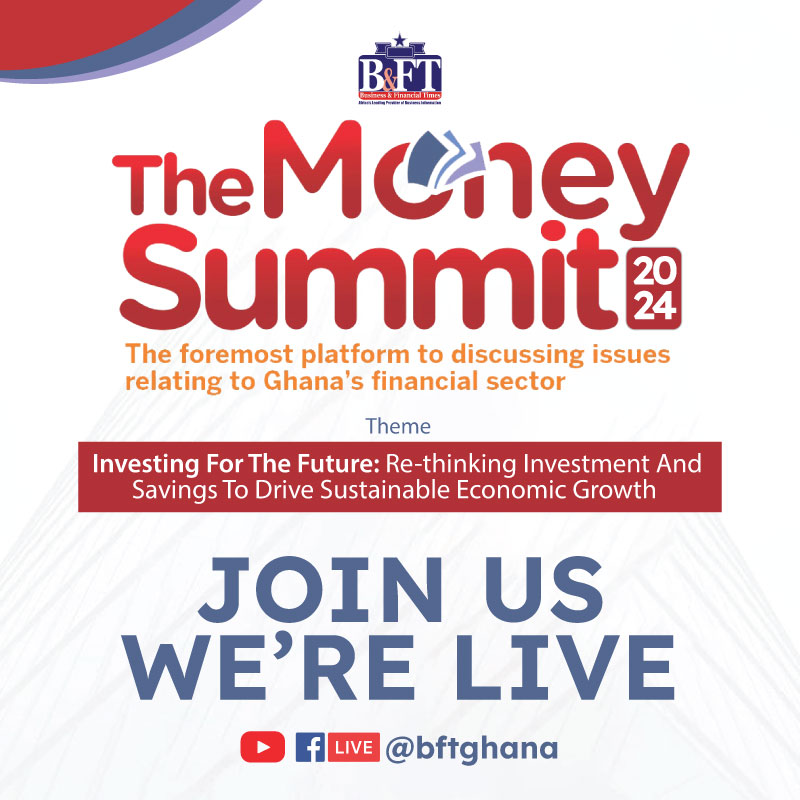A timely and equitable resolution to lingering issues surrounding the Domestic Debt Exchange Programme (DDEP) will bring clarity and boost investor decision-making, the Ghana Securities Industry Association (GSIA) has said.
While acknowledging that investor confidence is perhaps at its lowest, the GSIA is convinced that an expeditious conclusion to all niggling issues over the DDEP – especially one that minimises losses to the most vulnerable investor classes – is the best bet for restoring trust in the nation’s investment space.
Its Vice-President, Kisseih Antonio, explained to the B&FT that clarity over stakeholder participation in DDEP remains imperative to building confidence and momentum toward the recovery process, following last year’s economic downturn.
“There is no denying the position that we are in currently, and if not handled well some of the gains made by the capital market over the past 30-plus years could be significantly eroded. The capital markets have provided both government and the private sector with significant amounts of funding, and the way the debt exchange is handled will go a long way in determining whether hope will be restored in the investment management sector,” he said.
“This is especially so when one considers the challenges the sector went through during the financial sector clean-up, as well as the liquidity challenges collective investment schemes faced as a result of the country’s recent macroeconomic issues,” the GSIA Vice-President noted.
His comments come on the back of the latest deadline extension to the programme – which the finance ministry said will allow for further engagement with stakeholders, especially individual bondholders, to mitigate any adverse impacts.
Mr. Antonio said it is the hope of his outfit that the additional time will be used for swift, honest and transparent dialogue, as further delays could have dire impacts on the wider economy.
“We appreciate where we are as a country, and believe from our interactions that people are willing to make concessions as nobody would like to see the country sink to its knees. Once investors can get the feeling that government is willing to take the hard decisions with regard to cutting expenditure to the bone, and do not feel that government is imposing draconian terms on them, they will be more likely to make concessions,” he said.
He however added that the key to a successful programme is for government to empathise with investors that have given up the promised upside to their investments, which they expected to be contractually binding. Anything short of this, he emphasised, will make the debt exchange process protracted.
The Association had earlier welcomed the time-limit’s extension, particularly as it had major reservations about terms of the amended offer – which it says fell below its expectations.
Of particular concern to the GSIA was the inclusion of individual investors who hold domestic Government of Ghana bonds directly, or indirectly, through collective investment schemes.
“The extension is critical to ensure equity and fair treatment of all individual bondholders, and will further make the exchange programme more progressive,” a statement by GSIA stated.
“We take this opportunity to remind the ministry of our unwavering position that individual bondholders should include persons who hold bonds directly and those who hold bonds indirectly; that is, individuals having shares/units in collective investment schemes which have invested in government bonds and persons on whose behalf bonds are held in trust accounts – a position also espoused by the Ghana Individual Bondholders’ Forum,” it added.
The nation’s Collective Investment Scheme (CIS) ecosystem has grown rapidly over the last decade, in part due to the Securities Exchange Commission’s (SEC) directive that all investors with balances below GH¢100,000 should have their resources pooled into such schemes.
Made up of mutual funds and unit trusts, the space has seen its value rise from GH¢0.7billion in 2015 to GH¢3.8billion in 2019 – a compound annual growth rate (CAGR) of 51 percent. As of August 2022, the market’s estimated worth was GH¢7.07billion.
It has been a significant contributor to growth of the wider asset management sphere, which saw its assets under management (AUM) climb to GH¢47.92billion by the first quarter of 2022 from GH¢11.1billion at the end of 2015.











